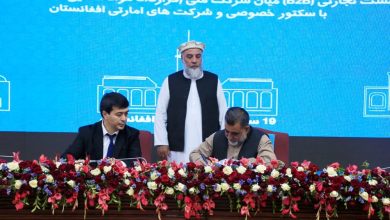Flourishing Rice Cultivation Along the Harirod River in Herat
Rice cultivation has long been a traditional practice in Herat, with many farmers, particularly those along the banks of the Harirod River, engaging in this agricultural activity annually. The fertile lands and access to water resources make this region ideal for growing rice, a crop deeply rooted in the province’s agricultural heritage.
Kabul 24: Farmers in the Guzara district have shared that they rely on water from the Salma Dam and the steady flow of the Harirod River to irrigate their rice fields. The availability of these water sources has enabled them to sustain and expand their rice cultivation, contributing to both local food security and economic stability. The use of such irrigation systems highlights the resourcefulness of Herat’s farmers in leveraging natural and constructed water infrastructure to support their livelihoods.
According to officials at Herat’s Directorate of Agriculture and Livestock, approximately 2,000 hectares of land are currently dedicated to rice cultivation across the province. Bashir Ahmad Ahmadi, the director of agricultural extension, noted that rice is primarily grown in the districts of Injil, Guzara, Pashtun Zarghun, and Karukh. These areas benefit from favorable soil conditions and proximity to water sources, making them ideal for rice farming. Ahmadi emphasized that the directorate is working to support farmers through technical guidance and resources to enhance productivity.
However, concerns have been raised by the Herat Environmental Protection Department regarding the sustainability of water-intensive crops like rice. Hamed Ilham, the department’s communications director, warned that excessive use of groundwater, particularly through solar-powered wells, is depleting underground water reserves.
He urged farmers to shift toward crops requiring less water to mitigate the risk of long-term water scarcity, especially in the face of ongoing drought conditions in the region.
In response to these challenges, officials of the Islamic Emirate have initiated projects to construct water retention dams and check dams to better manage water resources. These efforts aim to combat drought, improve irrigation efficiency, and support sustainable agriculture in Herat. By enhancing water infrastructure, the authorities seek to bolster the resilience of farmers, ensuring the continued prosperity of rice cultivation and other agricultural activities in the province.
These initiatives are expected to play a crucial role in revitalizing Herat’s agricultural sector while addressing environmental concerns, fostering a balance between economic growth and resource conservation.




